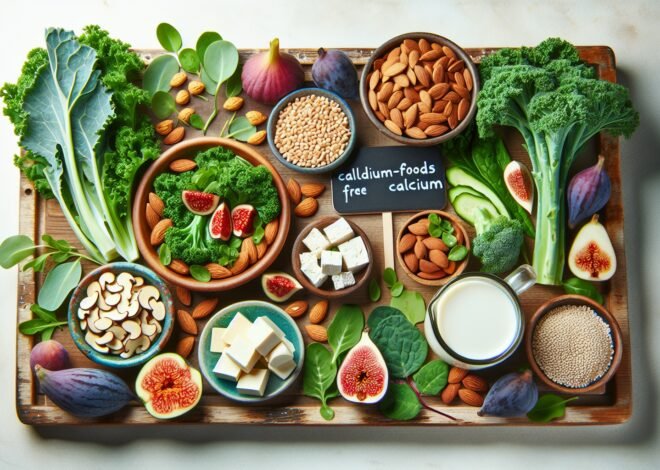
The Importance of Berries in an Anti-Inflammatory Diet
Berries for inflammation are an essential component of an anti-inflammatory diet, offering both flavor and health benefits. Packed with antioxidants, these vibrant fruits combat oxidative stress and reduce inflammation, potentially lowering the risk of chronic diseases like heart disease and arthritis. Studies have shown that consuming berries regularly can significantly decrease markers of inflammation. This article will explore the specific types of berries best suited for reducing inflammation, delve into their powerful nutrients, and provide practical tips on incorporating them into your diet. Discover how adding these nutritional powerhouses can enhance your health journey.
Understanding the Role of Berries in an Anti-Inflammatory Diet
Berries are more than just delicious fruits; they play a vital role in combating inflammation. Inflammation is the body’s natural response to injury or infection, but chronic inflammation can lead to various health issues. Incorporating berries into your diet can help in reducing inflammation and promoting overall well-being.
How Berries Help Reduce Inflammation Naturally
Berries are packed with antioxidants, which are crucial in fighting inflammation. These compounds help neutralize free radicals, which are unstable molecules that can damage cells and lead to inflammation. Furthermore, berries contain polyphenols, a type of antioxidant that has been shown to reduce inflammatory markers in the body.
Beyond antioxidants, berries are rich in vitamins and minerals that contribute to their anti-inflammatory effects. Vitamin C, for instance, is known to support the immune system and reduce inflammation. Additionally, berries contain anthocyanins, which give them their vibrant colors and have been linked to lower levels of inflammation.
Key Nutrients in Berries That Combat Inflammation
The nutrient profile of berries is impressive, making them a powerful ally in fighting inflammation. Key nutrients in berries include:
- Vitamin C: Supports the immune system and reduces inflammation.
- Fiber: Promotes gut health, which is essential for managing inflammation.
- Anthocyanins: These pigments have been linked to anti-inflammatory effects.
- Resveratrol: Found in grapes and some berries, this compound is known for its anti-inflammatory properties.
These nutrients work together to provide a natural defense against inflammation, making berries an excellent addition to any diet focused on reducing inflammation.
Comparing Berries to Other Anti-Inflammatory Foods
While berries are potent anti-inflammatory agents, there are other foods known for their inflammation-fighting properties. Comparing berries to foods like leafy greens, nuts, and fatty fish highlights their unique benefits. Berries offer a sweet and versatile option that’s easy to incorporate into various meals.
Unlike some anti-inflammatory foods that may require preparation or cooking, berries can be consumed fresh, frozen, or dried, making them convenient for any lifestyle. Their natural sweetness also reduces the need for added sugars, which can contribute to inflammation.
Top Anti-Inflammatory Berries You Should Include in Your Diet
Not all berries are created equal when it comes to fighting inflammation. Some berries stand out for their powerful anti-inflammatory properties. Including these berries in your diet can provide significant health benefits and help manage chronic inflammation effectively.
The Benefits of Blueberries for Inflammation Reduction
Blueberries are often hailed as a superfood, and for good reason. They are rich in antioxidants, particularly anthocyanins, which have been shown to reduce inflammation. Regular consumption of blueberries can help lower the risk of chronic diseases associated with inflammation.
Studies have shown that blueberries may improve markers of inflammation in individuals with metabolic syndrome. This makes them an excellent choice for those looking to manage or prevent inflammatory conditions. Incorporating blueberries into your diet can be as simple as adding them to smoothies, oatmeal, or yogurt.
Strawberries and Their Anti-Inflammatory Properties
Strawberries are not only delicious but also powerful in combating inflammation. They are rich in vitamin C and phenolic compounds, both of which play a role in reducing inflammation. Research suggests that strawberries can help lower levels of C-reactive protein (CRP), an inflammatory marker linked to heart disease.
Including strawberries in your meals can be a delightful way to boost your anti-inflammatory diet. They can be enjoyed fresh, added to salads, or used in desserts, offering both flavor and health benefits.
Raspberries and Their Role in Fighting Chronic Inflammation
Raspberries are another berry variety that packs a punch against inflammation. They are high in fiber, vitamins, and antioxidants, all of which contribute to their anti-inflammatory effects. The presence of ellagitannins in raspberries has been linked to reduced inflammation and improved antioxidant defense.
For those dealing with chronic inflammation, raspberries can be an excellent addition to the diet. They can be eaten on their own or added to cereals, desserts, and savory dishes, providing both nutritional value and a burst of flavor.
Tips for Incorporating Berries into Your Anti-Inflammatory Diet
Making berries a regular part of your diet is simple and rewarding. From selecting the best berries to exploring creative recipes, there are numerous ways to enjoy the anti-inflammatory benefits of these fruits. Here are some practical tips to help you incorporate berries into your daily meals effectively.
Delicious Berry Recipes for an Anti-Inflammatory Lifestyle
Experimenting with berry recipes can be a fun and delicious way to enhance your anti-inflammatory diet. Here are a few ideas:
- Berry Smoothie: Blend blueberries, strawberries, and raspberries with almond milk for a refreshing drink.
- Berry Salad: Toss mixed berries with spinach, walnuts, and feta cheese for a nutritious meal.
- Berry Oatmeal: Add fresh or frozen berries to your morning oatmeal for a sweet and healthy start.
These recipes not only taste great but also provide the nutrients needed to reduce inflammation naturally.
Best Practices for Selecting and Storing Berries
Choosing the right berries and storing them properly can enhance their flavor and nutritional value. When selecting berries, look for those that are firm, plump, and free of mold. It’s best to buy organic berries to avoid pesticide exposure.
For storage, keep berries in the refrigerator and wash them just before consumption to prevent spoilage. If you have an abundance of berries, consider freezing them. Spread berries on a baking sheet, freeze until solid, and then transfer them to an airtight container for long-term storage.
Seasonal Availability and Choosing the Right Berries for Maximum Benefits
Berries are seasonal fruits, and understanding their peak seasons can help you choose the freshest options. Blueberries are typically in season from May to August, while strawberries are best in the spring and summer. Raspberries have a shorter season, usually peaking in early summer.
Conclusion
Berries are rich in antioxidants and anti-inflammatory compounds. They help reduce inflammation in the body. Blueberries, strawberries, and raspberries are particularly effective. Their nutrients can help lower the risk of chronic diseases. Regular consumption can improve overall health.
FAQ
What are the best berries to eat for reducing inflammation?
Blueberries, strawberries, and raspberries are excellent choices. They’re rich in antioxidants and nutrients that help fight inflammation. Blackberries and cranberries also offer anti-inflammatory benefits.
How do berries help in reducing inflammation naturally?
Berries contain antioxidants like anthocyanins and flavonoids. These compounds combat oxidative stress and reduce inflammatory responses in the body. Their natural properties can alleviate symptoms associated with inflammation.
Can consuming berries daily help alleviate chronic inflammation?
Yes, eating berries daily can contribute to reducing chronic inflammation. Their high antioxidant content supports overall health and may lower the risk of inflammation-related diseases.
Which types of berries have the highest antioxidant properties for fighting inflammation?
Blueberries rank high in antioxidant properties. They are followed closely by blackberries and raspberries. These berries provide powerful nutrients that help reduce inflammation effectively.
Are there any specific berry-based recipes recommended for reducing inflammation?
Smoothies with a mix of berries, chia seeds, and spinach are nutritious options. You can also try a berry parfait with Greek yogurt and nuts. Salads with fresh berries and leafy greens work well too.
How much berry intake is recommended daily for anti-inflammatory benefits?
A daily serving of about one cup of mixed berries is suggested. This amount provides necessary antioxidants and nutrients to aid in reducing inflammation.











